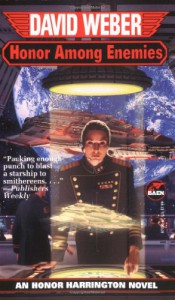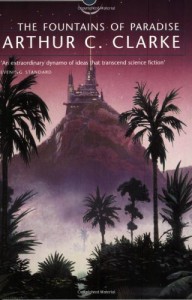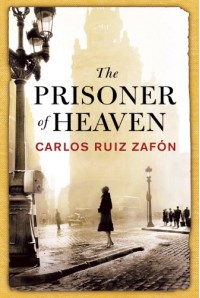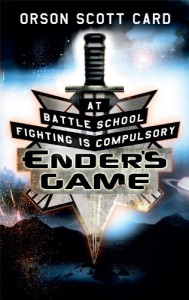5
Following
Strong tea and good books
“You can never get a cup of tea large enough or a book long enough to suit me.”
Ashes of Victory (Honor Harrington Series, Book 9)
 Lots of thought dumps that detract somewhat from the story and has kind of put me off the series as each novel is very similar to the last whereby Honor is going to survive and be the hero. May return to the series in the future.
Lots of thought dumps that detract somewhat from the story and has kind of put me off the series as each novel is very similar to the last whereby Honor is going to survive and be the hero. May return to the series in the future.
In Enemy Hands (Honor Harrington Series, Book 7)
 The poorest in the series so far, the first half of the book does not need to be read and the whole shambles of the White Haven / Honor attraction is poorly written, poorly executed, and not believable given the character's experiences.
The poorest in the series so far, the first half of the book does not need to be read and the whole shambles of the White Haven / Honor attraction is poorly written, poorly executed, and not believable given the character's experiences.Once he is off the scene the book gets better, but its a bit slow until they're on the way to Hades.
Honor Among Enemies (Honor Harrington #6)
 I'm a bit concerned the series is beginning to get tired and go downhill, this one is better than the next but thus far, this is where the series goes from a 4 star quality down to 3 and the next one, 2.
I'm a bit concerned the series is beginning to get tired and go downhill, this one is better than the next but thus far, this is where the series goes from a 4 star quality down to 3 and the next one, 2.
Total Recall: My Unbelievably True Life Story
 An interesting memoir that chronicles his childhood in Austria to his progression in bodybuilding in Europe and then America, culminating in moving to America with nothing and becoming a star, and then the Governor of California. It was interesting to see how he broke into movies, and what he tried to accomplish in politics, including fixing the gerrymandering of districts in California.
An interesting memoir that chronicles his childhood in Austria to his progression in bodybuilding in Europe and then America, culminating in moving to America with nothing and becoming a star, and then the Governor of California. It was interesting to see how he broke into movies, and what he tried to accomplish in politics, including fixing the gerrymandering of districts in California.
Axis
 Not quite as amazing as the first as most of the concepts that made the first book so great are continued here. It is more of a story set in a science fiction universe than a sci-fi book, and that's a good thing. It continues the arc of the first book and answers more questions than it raises.
Not quite as amazing as the first as most of the concepts that made the first book so great are continued here. It is more of a story set in a science fiction universe than a sci-fi book, and that's a good thing. It continues the arc of the first book and answers more questions than it raises.
Fountains of Paradise (Sf Masterworks 34)
 Not his greatest work in my eyes, this book may have aged more than others the great man has written though which has negatively impacted my view on the book. That being said, if you are a fan of Clarke this is a decent read and one which explores the concept of a Space Elevator in detail. Whether one is built in our lifetimes is another matter.
Not his greatest work in my eyes, this book may have aged more than others the great man has written though which has negatively impacted my view on the book. That being said, if you are a fan of Clarke this is a decent read and one which explores the concept of a Space Elevator in detail. Whether one is built in our lifetimes is another matter.
Star Maker (SF Masterworks) (Sf Masterworks 21)
 Disappointing. This book had been recommended to me by Goodreads and others in a Goodreads group but I just found it highly boring. I've read Jules Verne, and I've read old science fiction, but this is the first science fiction book I've read that felt really, really dated. The style, the lack of a plot development (in that nothing is kept a mystery and no anticipation is built into the story), and the complete absence of any affinity for the narrator just meant that I had little to no interest in continuing to read it or liking it.
Disappointing. This book had been recommended to me by Goodreads and others in a Goodreads group but I just found it highly boring. I've read Jules Verne, and I've read old science fiction, but this is the first science fiction book I've read that felt really, really dated. The style, the lack of a plot development (in that nothing is kept a mystery and no anticipation is built into the story), and the complete absence of any affinity for the narrator just meant that I had little to no interest in continuing to read it or liking it.
Starship Troopers
 Oh so much better than the film that completely butchered a great science fiction book and made it cheesy and crap. This is more of a story about a solider fighting a war in which he is such a small insignificant piece. It is a great book that is thematically similar to [b:The Forever War|21611|The Forever War (The Forever War, #1)|Joe Haldeman|https://d202m5krfqbpi5.cloudfront.net/books/1383141011s/21611.jpg|423]
Oh so much better than the film that completely butchered a great science fiction book and made it cheesy and crap. This is more of a story about a solider fighting a war in which he is such a small insignificant piece. It is a great book that is thematically similar to [b:The Forever War|21611|The Forever War (The Forever War, #1)|Joe Haldeman|https://d202m5krfqbpi5.cloudfront.net/books/1383141011s/21611.jpg|423]
Fahrenheit 451
 It is certainly a classic novel, one that is quite short at a little over 170 pages, but a good story about oppression and censorship. It reminded me quite a bit of Anthem by Ayn Rand. The surprise I had in reading the novel was that Montag had already been hiding books.
It is certainly a classic novel, one that is quite short at a little over 170 pages, but a good story about oppression and censorship. It reminded me quite a bit of Anthem by Ayn Rand. The surprise I had in reading the novel was that Montag had already been hiding books.The author's notes on his later play, and his thoughts on the novel many decades after the fact are interesting to read as well.
Judas Unchained (Commonwealth Saga)
 Epic. Absolutely epic. The conclusion to the Commonwealth Saga just leaves me wanting more even though the story, which neatly tied up at the end and came into a cohesive whole, came to a satisfying conclusion.
Epic. Absolutely epic. The conclusion to the Commonwealth Saga just leaves me wanting more even though the story, which neatly tied up at the end and came into a cohesive whole, came to a satisfying conclusion.There are so many characters in the two novels, which explains the character list at the beginning of each book, yet over the course of the two books each character is fleshed out a little and may come back at some key point to advance the plot.
My two favourite characters were Ozzie Isaacs and Paula Myo, at least before Ozzie's personality seemed to just get far too self-righteous. Those two being my favourites is probably explained by these two characters having two of the more interesting story arcs in the saga, and there are so many story arcs throughout the two books and yet the story remains focused and plot driven despite its near 2000 pages in length.
Ozzie's tone of self-righteous pomp comes up near the end after emerging from walking the Silfen paths, having found out from the Silfen about what had been going on, and then having been sequestered by Nigel Sheldon and being told what the Commonwealth planned on doing to MorningLightMountain and the Prime civilization, gets all uppity and aims to prevent it.
Now this could be attributed to the fact that he hasn't actually experienced what has been going on in the Commonwealth. He didn't witness the devastation of the Lost23 nor the obliteration of the Second47. I did think that the way he was able to commandeer a heavily guarded secret spaceship to be contrived and forced. (I will say that I'd worked out pretty early on that Ozzie assisted Bradley and the Guardians).
This nicely brings in the role of the SI in all of this, who assisted Ozzie in the above, and helped Mellanie throughout. Its desire to prevent a genocide, and not assist the humanity which I assume created it struck me as a little odd and unclear.
THE most interesting part of the whole story is how the reader's opinion of the Guardians of Self-hood completely changes as you progress through the story. This mirrors the way the Starflyer develops within the plot.
At first the Guardians are wacko-crazy terrorists, and the Starflyer is fake. As more legitimate characters start to question the evidence of the existence of such an entity, the Starflyer moulds into an entity who's motives are clear, against humanity, but who's origins and nature are unknown and undefined.
The way Hamilton handles this is done very well and I had not worked out, nor had I guessed, what entity the Starflyer would be and in the end it did make sense for why it was trying to mainpulate the Commonwealth as it was doing.
There was one area where a hole in the plot could exist, albeit this hole is in the first book but I didn't see it until the reveal in the second, and that is the fact that the Guardians who were trying to prevent the Second Chance launch could have, using the knowledge that Bradley Johansson has about the Starflyer, told the Commonwealth what would be found behind the barrier and what consequence this would have, gaining enormous credibility when it did happen.
The fact remains however that the lack of clues as to who was a Starflyer agent, the red herrings in place, and Hamilton's willingness to kill off just about any character, makes for a cracking yarn, albeit one that felt like it was reaching a climax with about 400 pages to go, from the trains' blockade busting run onwards.
I look forward greatly to moving on to the Void series and returning to the Commonwealth where hopefully Hamilton will continue to use a science fiction setting and technology to tell a great story.
Prisoner of Heaven
 Zafon returns! This is a clearly a series for bibliophiles, from the way each novel in the series is itself the name of a book within the Cemetery of Forgotten Books world, to the vocations of the characters, be they librarians, bookshop owners, or authors.
Zafon returns! This is a clearly a series for bibliophiles, from the way each novel in the series is itself the name of a book within the Cemetery of Forgotten Books world, to the vocations of the characters, be they librarians, bookshop owners, or authors. What The Prisoner of Heaven does is pull together more tightly the other two novels in the series by linking them each into the story in revealing and thoughtful ways. I certainly have come out of reading the book with a greater appreciation for The Angel's Game, even though I consider Prisoner of Heaven to be the better novel in terms of capturing my interest. The Shadow of the Wind is still the best novel of the three though.
That being said, the note at the beginning that the novels in the Cemetery of Forgotten Books series can be read in any order as they are independent novels in their own right may have some reasoning behind it, but I cannot see how that would be of benefit to the reader and I would recommend you read them in order: The Shadow of the Wind, The Angel's Game, The Prisoner of Heaven. Otherwise some of the events in the Prisoner of Heaven will spoil the mystery and suspense of the first two novels, which come to think of it, probably could be read in either order as the linking between the first two is small, it is this novel that brings them into a cohesive whole.
The Prisoner of Heaven is a little different from the previous two, it is not as much a mystery / detective / historical fiction novel. Rather than finding out bits of information piecemeal and putting them together yourself, the information about Fermin's past, Daniel's mother, and other bits comes in 'infodumps' by way of Fermin telling Daniel his past.
This may all be because it is... short... oh so short. At 275 pages in hardback this is going to be a paperback just over half the size of the Shadow of the Wind, and it seemed to me, that given that a fourth in the series is clearly in the offing, that this is merely the first part of a third book. I say that because just as I was getting pulled into the world Zafon has created, I realised I was near the end of the book and instead of being enthralled for another three to four hours, I was done in one. I think the book only took me about three hours to read, and having to wait who knows how long for the next one, that disappoints me.
The Hot Gate (Troy Rising)
 This is not high brow literature, it is not a novel that will ever likely be considered a high point in science fiction. There are no unprecedented ideas or thoughts, it is not genre breaking, what it is, is a damn fine science fiction novel that engrosses the reader.
This is not high brow literature, it is not a novel that will ever likely be considered a high point in science fiction. There are no unprecedented ideas or thoughts, it is not genre breaking, what it is, is a damn fine science fiction novel that engrosses the reader.Ringo's The Hot Gate sees the reader return to the Troy Rising series whereby earth is fighting for its survival in a hostile local galactic environment, and it is fighting well. Yet strangely, a lot of the novel's focus is not on this battle, but the trials and tribulations of one Dana 'Comet' Parker after being placed in a division which is predominately full of South American rich kids. How accurately Ringo portrays South American society and cultural values is not something I can authoritatively give an opinion on, but my suspicion is that it is quite simplistic and likely biased/prejudiced.
That being said, it is still a good read if you are after a light read with a good pace that maintains your science fiction loving interest.
The Gripping Hand
 For a sequel, the book starts off a little slow and gradually builds to become more interesting, more exciting, and more engaging. The developments in the Motie system after many years of blockade are the interesting points of note here and the focus on Horace Bury as the lead human representative was also a different approach to my expectations for the novel.
For a sequel, the book starts off a little slow and gradually builds to become more interesting, more exciting, and more engaging. The developments in the Motie system after many years of blockade are the interesting points of note here and the focus on Horace Bury as the lead human representative was also a different approach to my expectations for the novel.The novel almost entirely focuses on events in and around the Motie system, space battles are to a degree, shortened and lacking detail, which is not necessarily a bad thing as it gives a more focus to the story without the details. A couple of infodumps litter the pages but other than that its a science fiction novel that continues the story of humanity's encounter with its first intelligent alien species, and one that has changed from the last time they met. An interesting read, and a worthy successor to The Mote in God's Eye.





